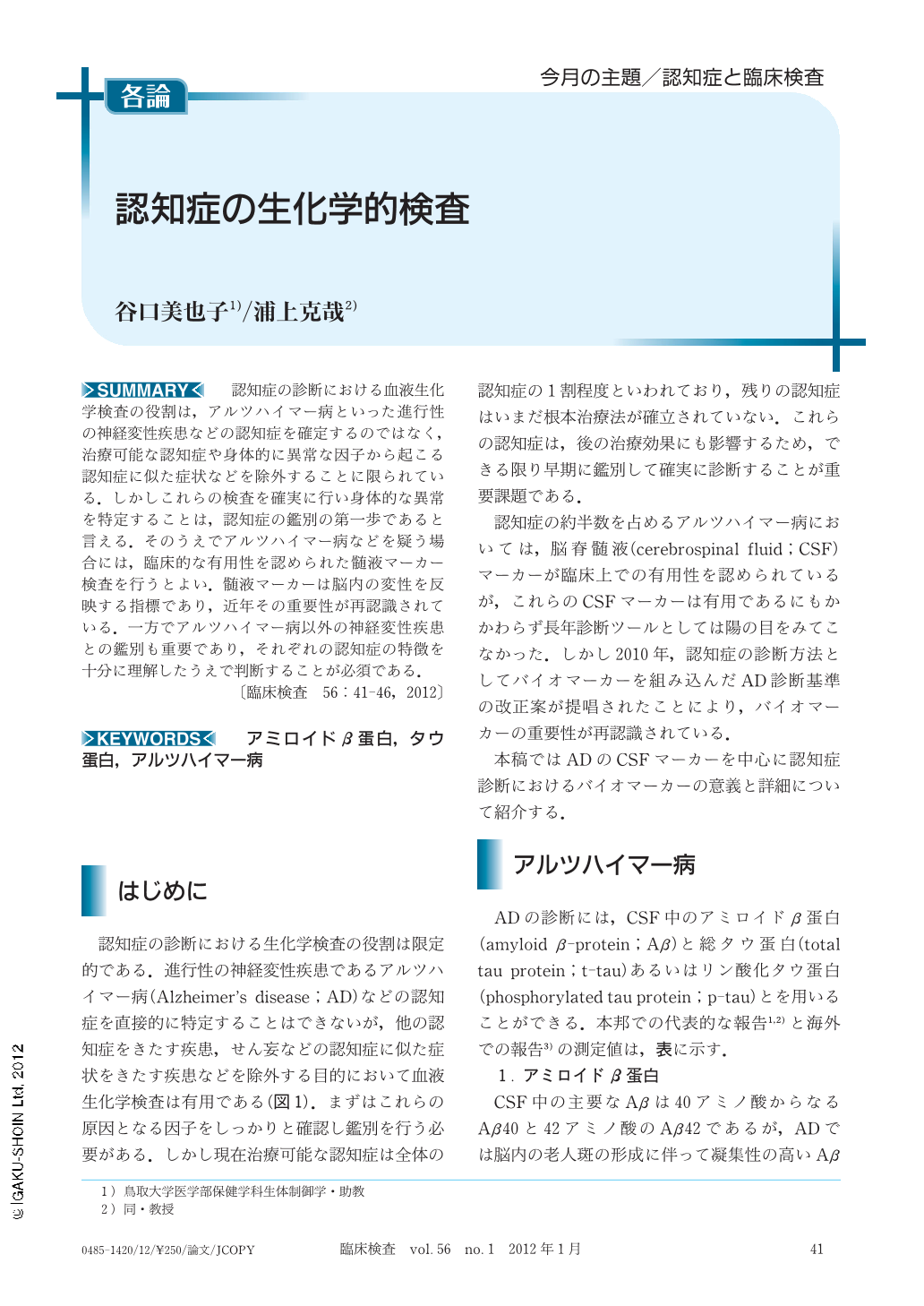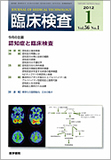Japanese
English
- 有料閲覧
- Abstract 文献概要
- 1ページ目 Look Inside
- 参考文献 Reference
認知症の診断における血液生化学検査の役割は,アルツハイマー病といった進行性の神経変性疾患などの認知症を確定するのではなく,治療可能な認知症や身体的に異常な因子から起こる認知症に似た症状などを除外することに限られている.しかしこれらの検査を確実に行い身体的な異常を特定することは,認知症の鑑別の第一歩であると言える.そのうえでアルツハイマー病などを疑う場合には,臨床的な有用性を認められた髄液マーカー検査を行うとよい.髄液マーカーは脳内の変性を反映する指標であり,近年その重要性が再認識されている.一方でアルツハイマー病以外の神経変性疾患との鑑別も重要であり,それぞれの認知症の特徴を十分に理解したうえで判断することが必須である.
When treating dementia, firstly, blood chemistry tests are used to determine whether the symptoms are the result of a physical cause, rather than a progressive neurodegenerative disorder, such as Alzheimer's disease (AD). For this reason, blood chemistry tests have a role in the diagnosis of dementia. After these tests, cerebrospinal fluid (CSF) markers, which are known to be indicators of neurodegeneration, are measured to differentiate AD dementia from non-AD dementia. As CSF markers cannot be used to diagnose all dementias, it is important to maintain a broad range of knowledge about the features of each type of dementia.

Copyright © 2012, Igaku-Shoin Ltd. All rights reserved.


